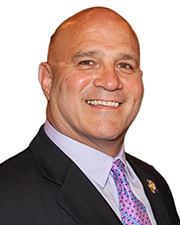Massachusetts Appeals Court upholds Prompt Pay Act
Last month, the Massachusetts Appeals Court affirmed the Superior Court decision in the case of Tocci Building Corporation vs. IRIV Partners, LLC., upholding the Massachusetts Prompt Pay Act. The case is important for owners and contractors - both subcontractors and general contractors - because it closely examined and upheld the meaning of the language in the statute.
The case stretches back to 2020 when the lower court ruled that an owner who withheld payment on the general contactor’s invoice was still obligated to pay all amounts requested because it failed to strictly comply with the requirements of the statute. The statute requires that a payment rejection be done timely, with a factual and legal rationale for rejection, and make an express certification that the rejection is made in good faith.
In this case, the owner, among other statutory failings, neglected to expressly certify that its rejection of the contractor’s invoices was made in good faith. The Court rejected the contractor’s position that the certification was “ministerial,” finding instead that the certification was “an essential component of the scheme set up by the statute.” The Court reasoned that “[t]he certification requirement ensures not only that the owner be deliberate about rejecting applications for periodic progress payments, and that it takes care to reject them only in good faith, its presence on a communication also provides a clear indication to the contractor that an application has been rejected, so that the contractor can know both that some response is needed and that time periods have been triggered for invoking what remedies are available.”
The Appeals Court found that the owner’s noncompliance with the statute resulted only in a waiver of its right to withhold payment. Importantly, the court said that the owner did not waive their right to later argue that the contractor breached the contract by their performance. In referring to the owner’s ability to make a later claim, the Court stated that the owner “may recoup any money they may be owed.”
In its analysis, the court twice quoted from the Amicus Brief submitted on behalf of the ASM, stating in one instance that “By securing prompt payment from upstream funding sources, the Act ensures that those who perform the work and pay all costs for labor and materials will be promptly compensated without the need to engage in costly legal battles on every project.” Joseph Barra, Esq., a construction attorney in Robinson + Cole’s Boston office, submitted the Amicus Brief on ASM’s behalf.
Michael McDonagh is the CEO of the Associated Subcontractors of Mass., Boston.
Timberline Construction Corp. completes renovation for Notre Dame Long Term Care facility


Insulation experts are the unsung heroes of our clean energy progress - by Jeffrey Saliba

It’s time to lead: Confronting mental health in construction - by David Watts

Navigating tariffs and material uncertainty in today’s construction market - by Karl Ginand and Tiffany Gallo


.png)








.png)